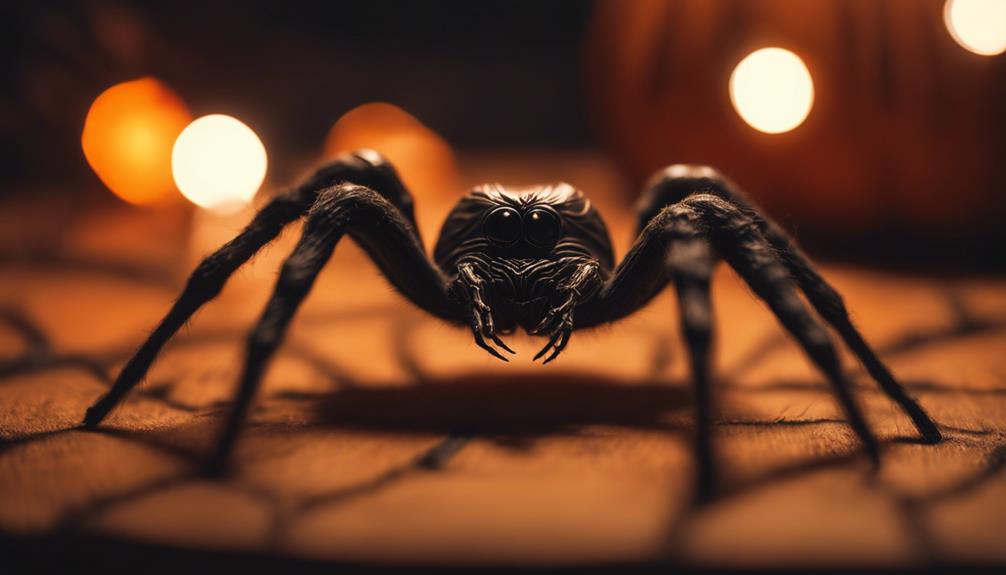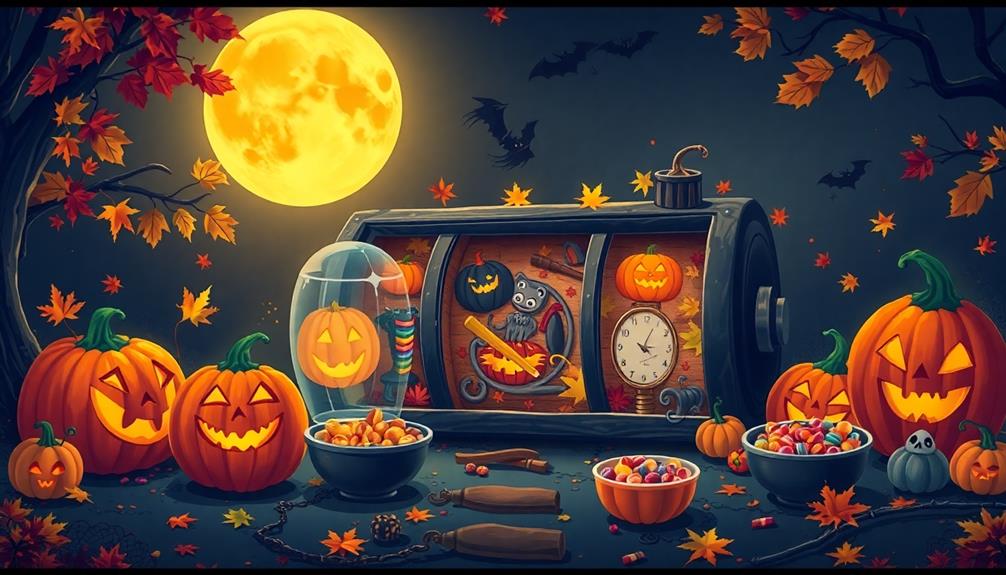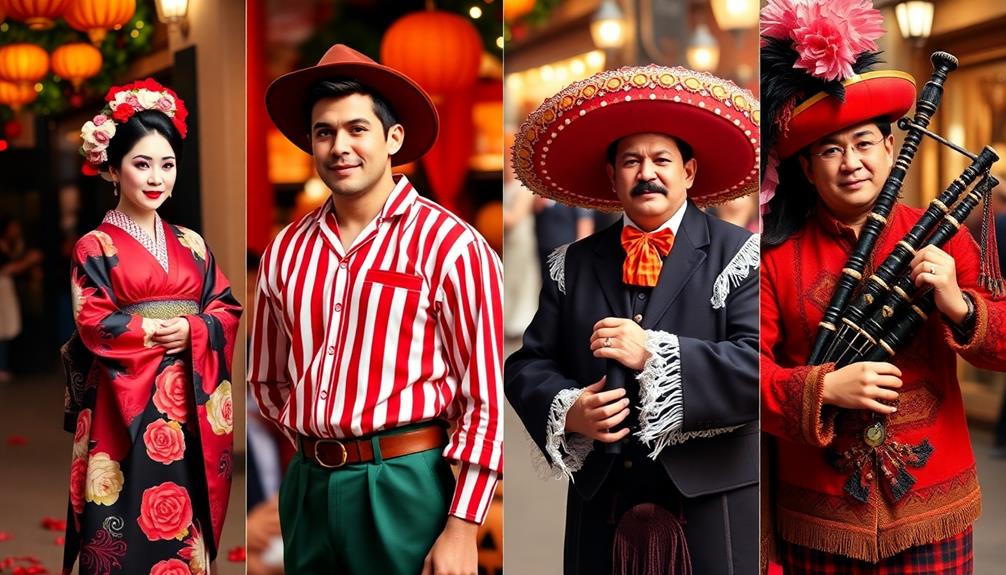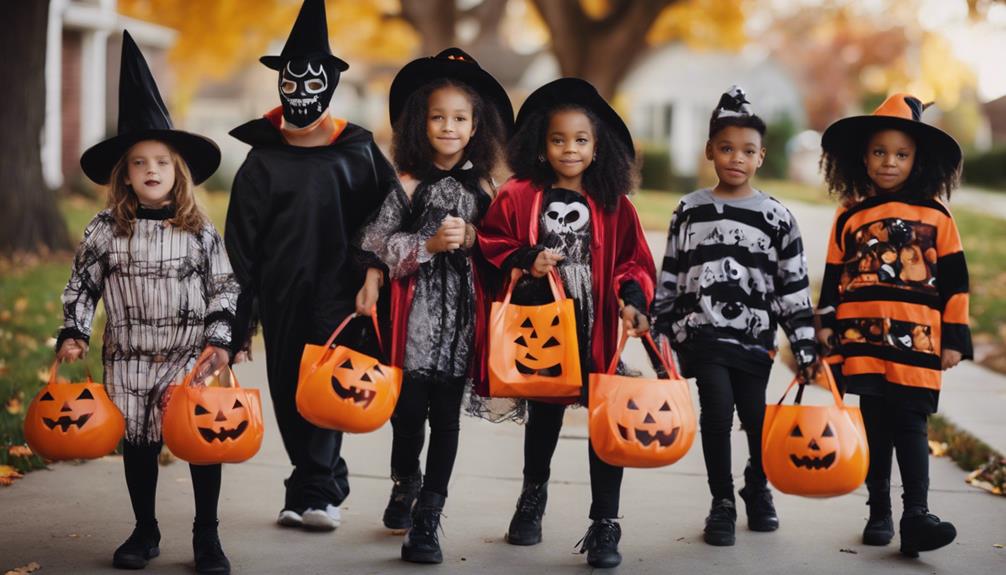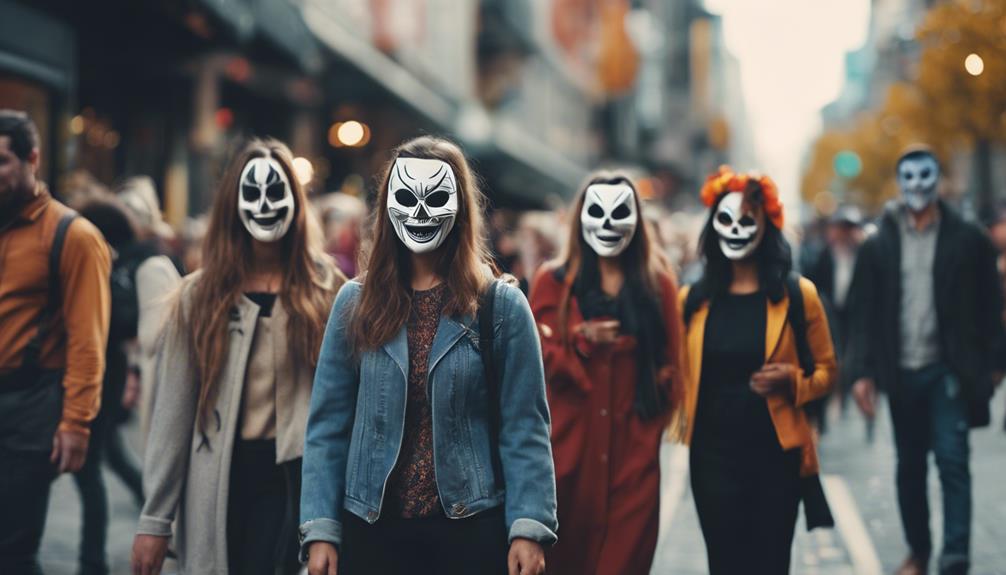Halloween, a festival rooted in history, can indeed be redeemed. The celebration's origins in the Celtic festival of Samhain and its integration with Christian traditions offer avenues for reflection and reverence. Christian viewpoints vary, with approaches ranging from limited participation to church-centered events. Spiritual growth through introspection, prayer, and remembrance of departed loved ones adds depth to the holiday. By engaging in acts of service, promoting community-building, and sharing goodwill gestures, Halloween can transform into a meaningful occasion. There is much more to explore about the redemption of Halloween and its significance in various cultures and traditions.
Key Takeaways
- Halloween can be redeemed through acts of service and charity.
- Engage in gospel-sharing to infuse Halloween with meaning.
- Opt for Fall Festivals that foster community connections.
- Sharing soul cakes with neighbors promotes goodwill.
- Transform Halloween into a meaningful celebration through positive actions.
Origins of Halloween
The origins of Halloween can be traced back to the ancient Celtic festival of Samhain marking the end of summer. Samhain was a significant event for the Celts as they believed it was a time when the boundary between the living and the dead blurred, allowing spirits to roam the earth. This pagan holiday also involved offerings to Celtic deities and bonfires to ward off evil spirits.
As the Roman Empire expanded, the traditions of Samhain merged with Roman holidays, eventually leading to the establishment of All Saints Day by Pope Boniface IV in 609 A.D. All Saints Day was meant to honor all saints, and customs like souling, where people would go door to door asking for food in exchange for prayers for the dead, became associated with this Christian celebration.
Thus, Halloween's roots run deep, originating from a mix of Celtic and Roman traditions that have evolved over centuries to form the holiday as it's recognized today.
Reformation Impact
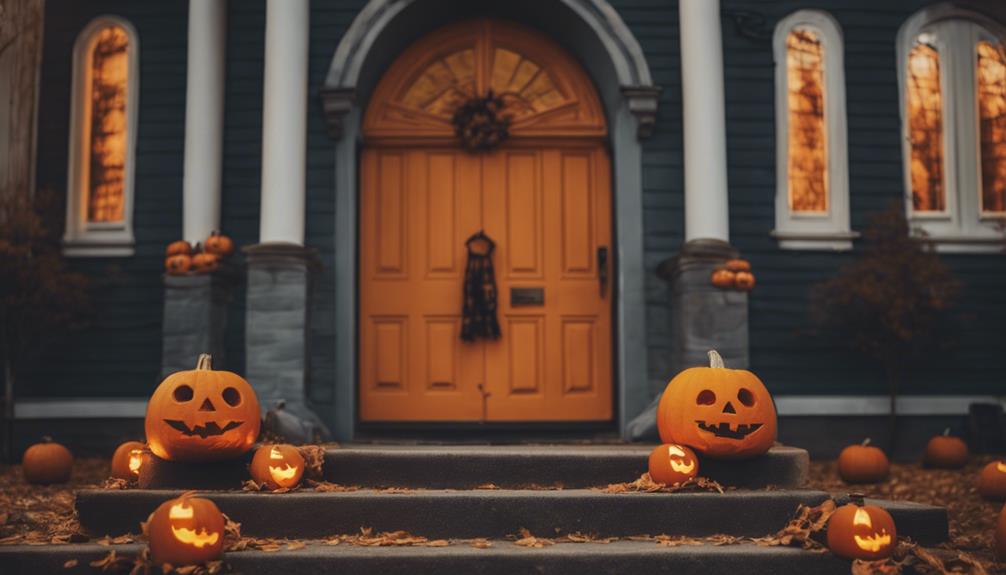
With the rise of the Reformation, Protestant Christians began to reject Catholic holy days like All Saints Day, leading to a significant shift in religious observances. The theological differences between Protestants and Catholics, such as the Protestant rejection of the concept of Purgatory, played an important role in this divergence. Reformation Day, which falls on October 31st, became a day of prayer and fasting for Protestants in opposition to the Catholic All Saints Day.
Lutherans, in particular, often commemorate Reformation Day with specific traditions and teachings of key figures like Martin Luther, emphasizing the significance of this event in their religious history. The rejection of traditional Catholic holidays like All Saints Day due to the theological disputes brought about by the Reformation movement led to varied perspectives among Christians on the observance of Halloween and other traditional holidays. The legacy of the Reformation continues to influence how different Christian denominations approach and celebrate these holidays today.
Christian Perspectives on Celebration
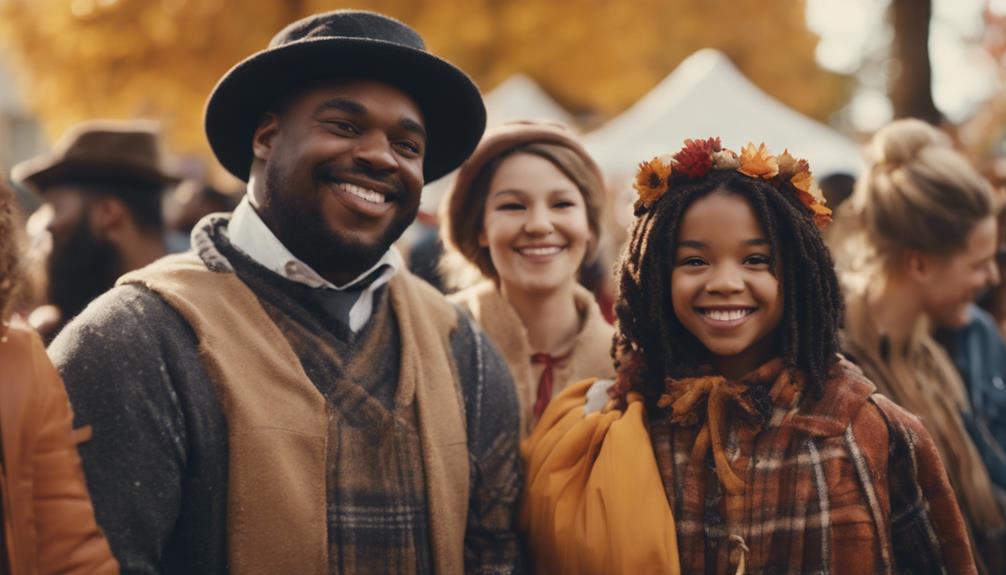
Considering the diverse range of opinions among Christians, Halloween's redeemability remains a topic of ongoing debate within Christian communities. Some Christians believe Halloween isn't redeemable, while others choose to decorate with fall themes and allow limited participation in the festivities.
A small percentage of Christians, around 11%, celebrate Halloween without restrictions, while 9.5% opt for church-based or Christian-focused celebrations as an alternative. Churches often organize harvest parties to provide a redeemable option to traditional Halloween celebrations, incorporating activities like pumpkin carving as object lessons symbolizing redemption in Christian perspectives on Halloween.
Even among Christian homeschool moms, there's a varied stance on the redeemability of Halloween. These perspectives reflect the different ways Christians navigate the celebration of Halloween, considering their beliefs and values while engaging in the festivities or opting for church-based alternatives.
Spiritual Growth and Reflection

When considering spiritual growth and reflection during Halloween, you can find inner peace through introspection.
This holiday offers you personal growth opportunities as you engage with its traditions.
Inner Peace Through Reflection
Indulging in moments of quiet introspection can pave the way for inner peace and spiritual growth. Reflecting on your beliefs, values, and experiences can lead to personal growth and enlightenment. Consider these three key practices to nurture inner peace and spiritual development:
- Meditation: Taking time to quiet your mind and focus on the present moment can help you connect with your inner self and cultivate a sense of calm and clarity. Through meditation, you can deepen your understanding of your beliefs and values, fostering spiritual growth.
- Prayer: Engaging in prayer allows you to communicate with a higher power, strengthening your relationship with God and seeking guidance and comfort. It can provide solace during times of uncertainty and help you navigate the complexities of good and evil in the world.
- Mindfulness: Practicing mindfulness involves being fully present in the moment without judgment. This awareness can enhance your emotional intelligence, empathy, and self-awareness, promoting inner peace and fostering spiritual growth. By integrating these practices into your routine, you can set out on a journey towards self-discovery and spiritual enlightenment.
Personal Growth Opportunities
Engaging with Halloween can present unique opportunities for personal spiritual growth and reflection. This day, often associated with costumes and candy, can also serve as a time for introspection. Reflecting on your personal beliefs about Halloween and its traditions can lead to a deeper understanding of your spiritual journey.
Considering how your faith interacts with the celebrations of Halloween can prompt personal growth and self-discovery. Evaluating how to approach this day in a manner that aligns with your spiritual convictions can be a formative experience.
Using Halloween as a time for self-reflection on your relationship with God and community can foster spiritual development. By engaging with the more profound aspects of this holiday, you might discover new things about yourself and your beliefs.
Embracing personal growth opportunities during Halloween can enrich your spiritual journey and offer insights into your values and convictions.
Spiritual Insights on Halloween
To deepen your spiritual understanding during Halloween, exploring the spiritual insights and reflections this holiday offers can be profoundly enlightening. Here are three ways in which you can gain spiritual growth and reflection during Halloween:
- Connecting with Saints: Halloween, originally known as All Hallows' Eve, is the eve of All Saints' Day. Take this time to reflect on the lives of saints and how their stories can inspire and guide you in your spiritual journey.
- Embracing Redemption: Halloween can be seen as a time of redemption and renewal. Reflect on the concept of redemption in your own life and how this holiday can symbolize a fresh start or a turning point in your spiritual growth.
- Deepening Spiritual Practices: Use Halloween as an opportunity to deepen your spiritual practices. Whether through prayer, meditation, or attending religious services, engage in activities that nurture your spiritual connection and understanding.
Honoring Saints and Loved Ones
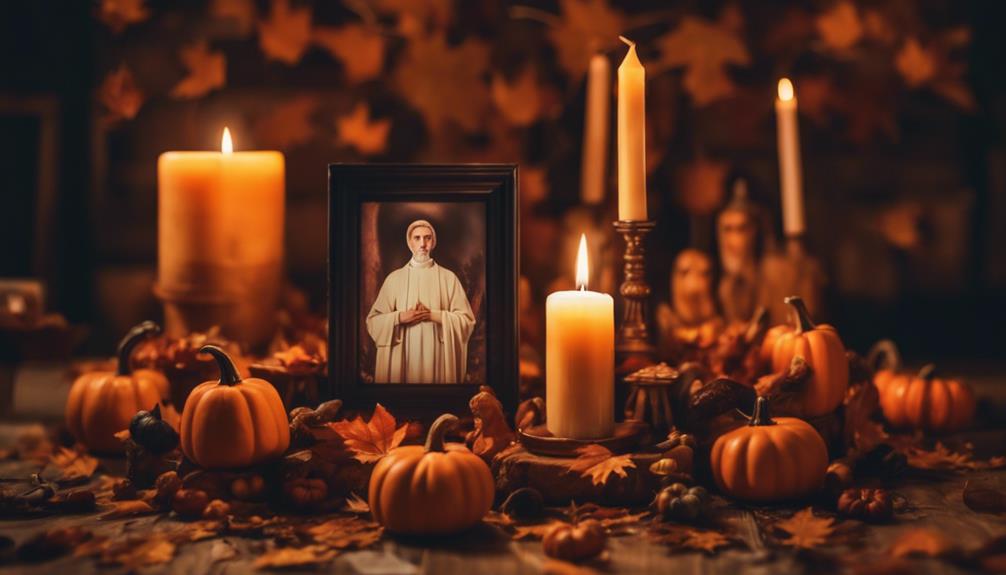
When celebrating Halloween, you have the opportunity to honor saints and loved ones who've passed away. Remembering departed ancestors and celebrating the spiritual significance of All Saints and All Souls Days can bring a deeper meaning to the holiday festivities.
This tradition allows for a connection between the living and the dead, emphasizing unity and remembrance.
Remembering Departed Ancestors
Honoring saints and loved ones through the traditions of All Saints Day and All Souls Day allows for a meaningful connection with departed ancestors. These celebrations provide a time to reflect on the lives of those who've passed on, fostering a sense of unity with the deceased in a spiritual context. Here are three key aspects to ponder when remembering departed ancestors:
- Prayer for Departed Loved Ones: Engaging in prayer during these days offers a way to honor the memory of loved ones who've passed away, seeking peace for their souls and expressing gratitude for the impact they had on your life.
- Forgiveness and Reconciliation: Allowing yourself to forgive any unresolved feelings towards departed individuals can be a powerful way to reconcile with the past, promoting healing and closure in your relationships with them.
- Remembrance through Unity: By participating in the traditions of All Saints Day and All Souls Day, you actively keep the memory of departed ancestors alive, ensuring they aren't forgotten and fostering a sense of continuity between past generations and the present.
Celebrating Spiritual Significance
Celebrating the spiritual significance of honoring saints and loved ones provides a meaningful connection to departed ancestors. Halloween, originating from the Christian feast of All Saints on November 1st, was initially focused on honoring martyrs and deceased loved ones. Over time, this tradition expanded to include all saints and non-martyr witnesses, emphasizing the spiritual significance within the Christian tradition.
All Souls Day on November 2nd complements All Saints Day by remembering all deceased individuals, further highlighting the importance of honoring deceased loved ones. Halloween serves as a vigil for both All Saints and All Souls Days, fostering a sense of unity with the departed in Christ.
Symbols and Moral Lessons
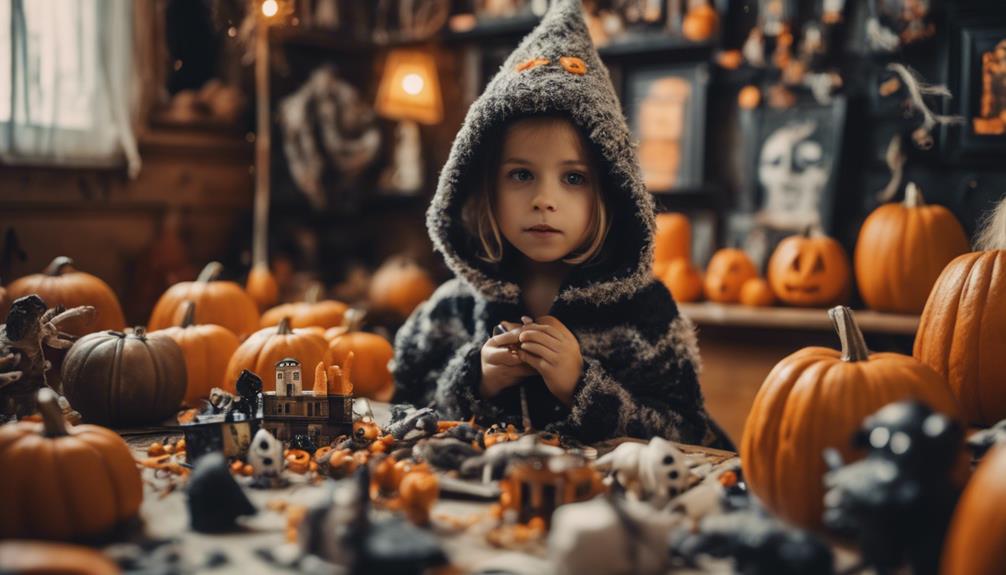
Amidst the eerie symbols and moral lessons of Halloween, the tradition offers a unique opportunity for reflection and growth. Here are some key aspects to ponder upon:
- Positive Role Models: Many parishes encourage dressing up as saints for a procession, promoting positive role models for children and adults alike. By emulating the virtues of these saints, individuals can learn valuable lessons about faith, compassion, and courage.
- Symbolism and Protection: Halloween's origins with martyrs justify the use of eerie symbols to teach enduring faith and joy. Symbols like jack-o-lanterns, which have a special place for Catholics, can also be seen as symbols of protection, guiding individuals on a moral journey and warding off evil.
- Reconciliation and Healing: Halloween can be a time for reconciliation and forgiveness, promoting healing and unity within communities and families. It offers a chance to reflect on past grievances, seek forgiveness, and move forward with a renewed sense of peace and understanding.
Transformation Into Meaningful Celebration

By infusing intentionality and purpose, Halloween can undergo a significant transformation into a meaningful celebration.
Historically, Halloween traces back to Pope Gregory III and Pope Boniface IV, who established the feast of All Martyrs. To redeem the holiday, consider embracing positive intents such as engaging in acts of service, charity, and gospel-sharing.
Instead of traditional activities, opt for alternatives like Fall Festivals that promote community-building. Soul cakes, traditionally baked to honor the dead, can be shared with neighbors as a gesture of goodwill.
Shifting the focus towards activities that align with Christian principles of love and outreach can infuse Halloween with newfound significance.
Frequently Asked Questions
Can Christians Redeem Halloween?
You can redeem Halloween by participating in alternative events like Fall Festivals or focusing on acts of service, charity, and sharing the gospel message. Engaging in positive activities can align with Christian principles of love and outreach.
The decision to redeem Halloween is personal and based on your convictions about using the holiday for godly purposes. By redirecting the focus to positive elements and spreading kindness, you can make Halloween a meaningful and uplifting experience.
What Does God Say About Halloween?
God doesn't explicitly address Halloween in the Bible since it's a modern holiday. However, principles of honoring Him, avoiding evil, and promoting love for others can guide your approach.
Focus on celebrating with a spirit of gratitude, kindness, and respect for all. Use discernment to make sure your activities align with God's values.
Ultimately, seek to glorify Him in all you do, including how you observe Halloween.
How to Bring God Into Halloween?
To bring God into Halloween, consider incorporating Christian themes like love, kindness, and service. Use this holiday as an opportunity to share the gospel message positively.
Engage in acts of charity, such as giving out treats with Bible verses or hosting community events. Choose alternative events like Fall Festivals or Trunk or Treats at churches to provide a redeeming option.
Focus on reflecting God's love and outreach to the community through Halloween celebrations.
Is Halloween a Pagan Holiday?
Yes, Halloween has pagan origins, stemming from the ancient Celtic festival of Samhain. It was later intertwined with Christian traditions, leading to the establishment of All Saints Day.
Despite its historical roots, some Christians debate whether Halloween is a pagan holiday. This association with paganism remains a point of contention among various Christian groups, influencing perspectives on participation.
The debate over Halloween's pagan roots shapes how some Christians engage with the holiday.
Conclusion
To sum up, Halloween can indeed be redeemed through a reevaluation of its origins, a focus on spiritual growth and reflection, and a celebration of saints and loved ones. By understanding the symbols and moral lessons associated with this holiday, we can transform it into a meaningful celebration that honors tradition and encourages personal growth.
Can Halloween be redeemed? The answer lies in our willingness to embrace its true essence and purpose.

